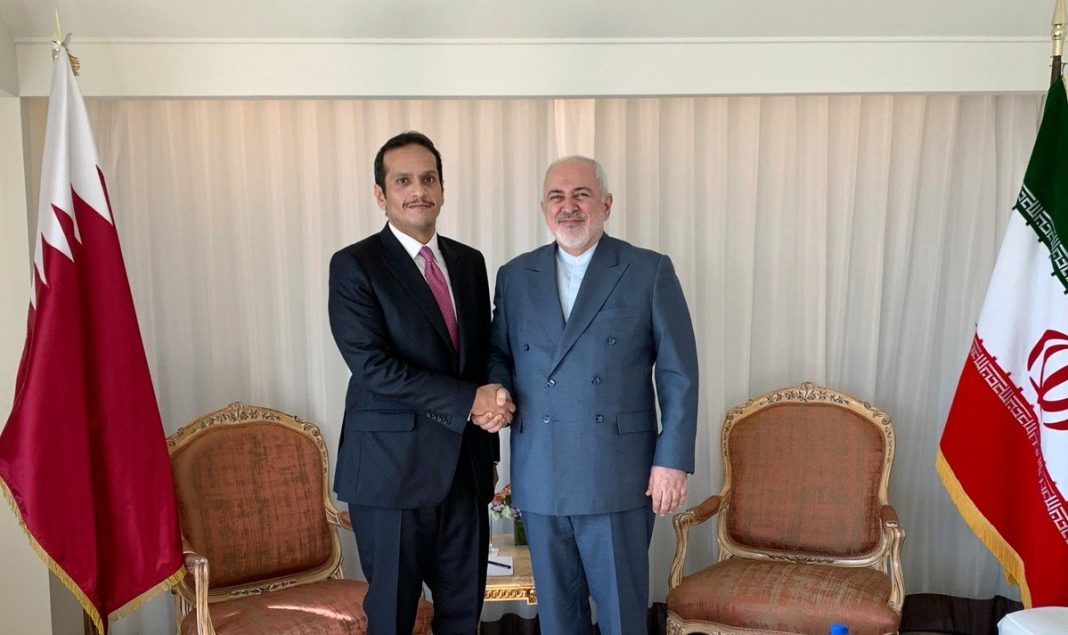Washington and Tehran have been holding indirect talks in Vienna since last month to work towards the return of the Joint Comprehensive Plan of Action [JCPOA].
Qatar has urged parties involved in efforts to return to the 2015 nuclear deal to engage in “positive” discussions, calling for the reduction of tensions between the two countries.
“We have strong and strategic relations with Washington and we have good relations with Tehran and we don’t want to increase the tension, which will reflect negatively on Qatar and the region,” Qatar’s Foreign Minister Sheikh Mohammed bin Abdulrahman Al Thani told Al Jazeera on Friday.
“There are continuous calls with the US and Iran and encouragement for them to engage in discussion in a positive way.”
Al Thani also told the Qatar-based broadcaster that he hopes the ongoing Vienna talks will succeed and that the meetings will result in dialogue between Iran and the region.
Qatar has been one of the countries calling for the revival of the JCPOA in recent months.
In February, the foreign minister said that the Gulf state will “spare no efforts” to restore the deal.
Absolutely right, dear Enrique! There is no deadline, but there is a target date-21 May. Of course, we can continue negotiations after this date, but in such a case uncertainties and risks would be higher. It is good that all participants in the Vienna talks understand this. https://t.co/djQVsoeSSm
— Mikhail Ulyanov (@Amb_Ulyanov) May 9, 2021
“We hope that with the return of the US to the nuclear deal as soon as possible, challenges and sanctions can be alleviated within the framework of the deal, and Qatar will not spare any efforts to make that happen,” Al Thani said during his February visit to Tehran.
The foreign minister’s comments come as diplomats from Washington and Tehran as well as countries involved in the deal hold indirect meetings in Vienna in efforts to revive the JCPOA after US President Donald Trump withdrew from the accord in 2018.
On Thursday, a senior US State Department official said an agreement to return to the deal could be reached “within weeks” as a result of the meetings.
“Is it possible that we’ll see a mutual return to compliance in the next few weeks, or an understanding of a mutual compliance? It’s possible yes,” the official told reporters on condition of anonymity.
“Is it likely? Only time will tell because, as I said, this is ultimately a matter of a political decision that needs to be made in Iran,” the official added during a telephone briefing.
Read also: Qatar to ‘spare no efforts’ to help revive US-Iran nuclear deal
Iran’s top nuclear negotiator Abbas Araqchi also said that there is still “a long way to go”.
“When it will happen is unpredictable and a timeframe cannot be set. Iran is trying [for] it to happen as soon as possible, but we will not do anything in a rush,” Araqchi told Iranian state TV.
A European diplomat speaking on condition of anonymity said the US has made a proposal regarding the removal of sanctions in key sectors such as oil, gas and banking while suggesting its openness to possibly easing sanctions related to terrorism and human rights.
The diplomat added that Western diplomats believe Iran’s negotiators are awaiting Tehran’s June 18 elections and are using the time to get the best out of the meetings from the US.
On the other hand, the US official stated that the deal could be revived even before the elections and placed the responsibility on Iran to ensure the return of the accord without asking for more from Washington.
While a specific deadline has not been placed by any of the countries involved in the meetings, Russia’s top representative at the Vienna talks Mikhail Ulyanov said that the target date for a settlement is May 21st.
The indirect meetings between the US and Iran are attended by members of the deal—China, France, Russia, the UK and Germany.
The US and Iran have agreed on the formation of two working groups to ensure compliance in the accord – one to oversee the lifting of sanctions on Tehran and another to monitor its limitation of nuclear activity.
If the sanctions on Iran are lifted, the country expects to export up to 2.5 million barrels per day [b/d].
The Trump administration withdrew the US from the JCPOA on May 8th, 2018 and reimposed sanctions on Iran to apply “maximum pressure”, leading to a series of tensions between the two rival states.
Consequently, Iran’s economy took a great hit and fell into a recession with sanctions striking its oil sales.
Follow Doha News on Twitter, Instagram, Facebook and Youtube







